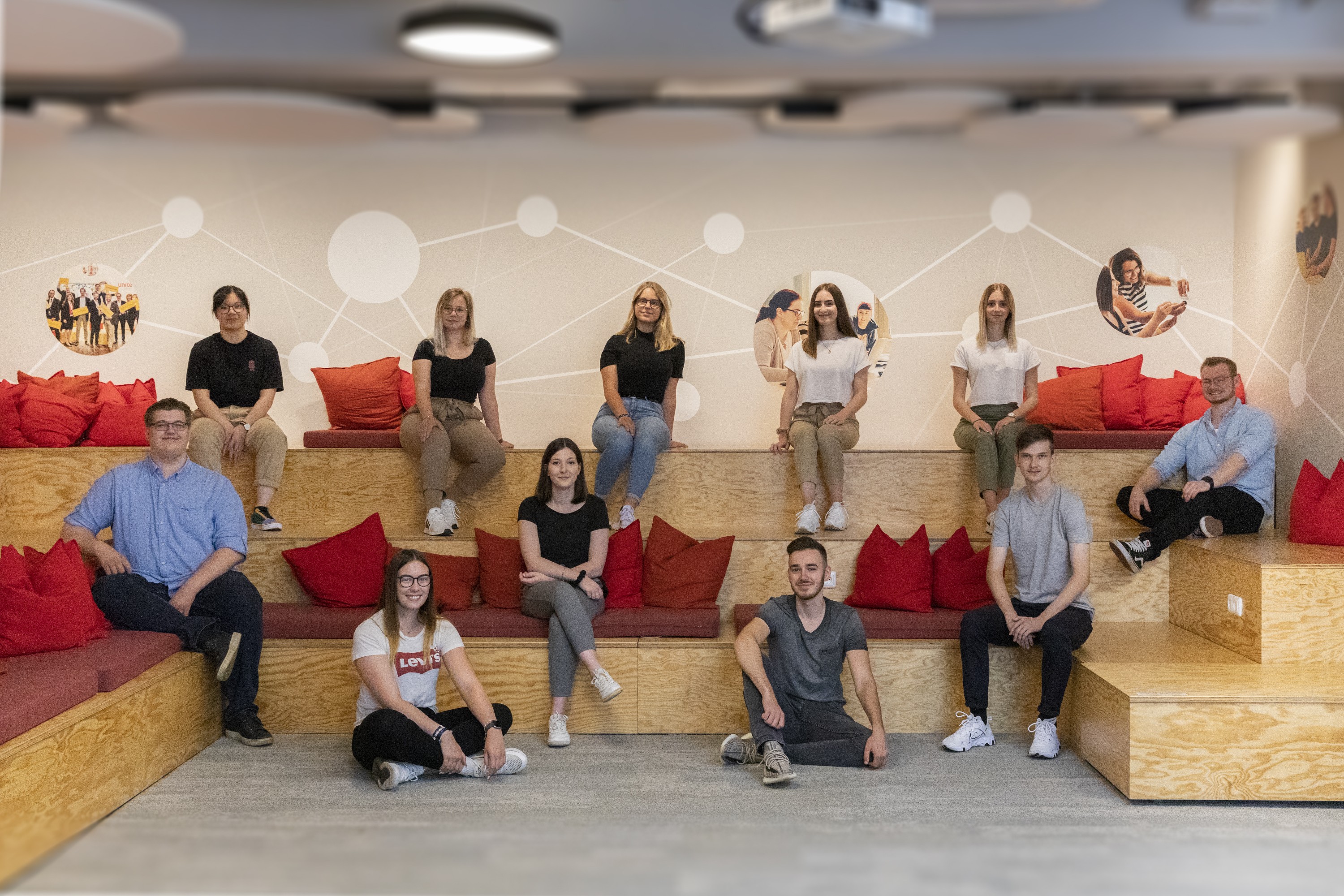Although according to the DIHK German Chamber of Industry and Commerce,* the total number of new traineeships in the country is currently down by 7% on 2019, Mercateo is investing more and more in the in-house training of specialists. A total of 26 young Mercateos in three separate intakes are currently undergoing training. And they’re becoming become part of an international team, for around 600 people in 14 European countries are currently employed by the biggest B2B marketplace in Europe and the B2B network unite.eu.
*) DIHK training survey conducted in June 2020
Mercateo Corporate Communications recently spoke to Caroline Klehr, HR Consultant Young Talents at Mercateo:
Caroline, we’re in the middle of a crisis, yet Mercateo has signed up even more trainees than last year! How come?
Caroline Klehr: For us, challenging times and training are actually a great match. We’d already planned to increase the number of traineeships before the coronavirus pandemic. Our office in Köthen has been a successful training centre since 2005, and that’s where we have the highest proportion of staff trainers. But in recent years, the groundwork has been laid for our headquarters in Leipzig to catch up. Moreover, we think it’s important at this time in particular to train young people internally and to retain them. We’ve been hit by the crisis like everyone else, of course, but we have reason to be optimistic. We can’t afford to let our upswing or our continued growth fail for want of personnel.
In March 2020, Mercateo’s entire workforce was told to work from home, and the majority still aren’t back in the office yet. How could all the trainee positions be filled?
CK: At Mercateo, we’re in the comfortable position of being used to working digitally. In addition, the fact that our IT was very well prepared ensured smooth cooperation with everyone throughout the company. In HR, job applications had long been handled by a management system that handled all processes digitally. The difference was that this time we made greater use video interviews instead of traditional face-to-face job interviews.
As an HR consultant, don’t you need personal contact with people?
CK: Clearly, we always prefer personal dialogue. After all, for us in HR, direct contact is vital. However, in recent months we’ve been forced to abandon some of our principles. More can be done digitally in HR and training than we’d previously thought. Even the onboarding of new staff, showing them the ropes, has gone smoothly thanks to video chat, the intranet, and other digital tools, despite our original misgivings. The success of this is partly down to our stable, sincere corporate culture. What’s more, we shouldn’t forget that today’s generation of trainees and students can undoubtedly be described as digital natives. For them, working digitally isn’t just for times of crisis – it’s normality.
In what professions does Mercateo take on trainees?
CK: We now train people for a wide range of careers in office management, dialogue marketing and marketing communications. We also offer training in digital and print media design as well as the relatively new profession of e-commerce specialists. And being a tech company, we naturally train digitisation managers, who’ve replaced the former IT management assistants, as well as app developers. Our students enrolled at the BA University of Cooperative Education are majoring in international business administration. They come to us for their practical training.
What can these young people expect from Mercateo?
CK: It might sound obvious, but trainees and students at Mercateo can look forward to a team who’ll support them, yet also stretch them, and integrate them into the work routine from day one. They can also talk to their personal staff trainer at any time – something which is by no means the case with other employers. In addition, we offer a varied in-house programme. It includes extensive Mercateo onboarding from the outset and then intensive induction in trainees’ areas of work, and this is supplemented by frequent training courses. In addition, our trainee campus regularly holds seminars to improve soft skills and methodological expertise. True, some training sessions have been put back by COVID-19, but we’re currently working on new approaches in order to replace them.
Furthermore, we feel it’s important for trainees not to stew in their own juice. Rotating jobs and locations – including internationally – as well as sending them on field trips enables them to broaden their horizons and network within the company. Projects they take charge of by themselves, such as the Christmas raffle and the volleyball tournament, are also a source of valuable practical experience.
How many trainees are taken on full-time afterwards?
CK: We always aim to have our trainees join us on a full-time basis once their training’s over. We take on an above-average proportion of over 90 per cent. This year, we offered all seven graduates a job. Only one of them turned it down – and only because she was emigrating to the UK.
Thanks for talking to us, Caroline!
(Interview released for publication in whole or in part.)

Get in touch
Want a quote or expert analysis? Our Press Team is here to help.
